 W
WThe 2009–present phase of the Somali Civil War is concentrated in southern and central Somalia and portions of north eastern Kenya. It began in early February 2009 with the conflict between the forces of the Federal Government of Somalia, assisted by African Union peacekeeping troops, and various militant groups and factions. The violence has displaced thousands of people in the southern part of the country. The conflict has also seen fighting between the Sufi Ahlu Sunna Waljama'a and Al-Shabaab.
 W
WThe Abdiaziz Abdinur Ibrahim controversy began in February 2013 when journalist Abdiaziz Abdinur Ibrahim interviewed Lul Ali Osman, who claimed that she was raped by government security forces while living in an internally displaced peoples camp in Mogadishu, Somalia. The two were arrested, tried, and sentenced to a year in prison for having allegedly fabricated the story. The trial was described by some human rights groups as politically motivated. Osman was later in the month acquitted following an appeal, and Ibrahim's sentence was reduced to six months. It was concurrently announced that an Independent Task Force on Human Rights had been established, which would review his case to see if due process has been followed. Ibrahim was released from detention the following month, on 17 March 2013.
 W
WThe African Union Mission in Somalia (AMISOM) is an active, regional peacekeeping mission operated by the African Union with the approval of the United Nations Security Council. It is mandated to support transitional governmental structures, implement a national security plan, train the Somali security forces, and to assist in creating a secure environment for the delivery of humanitarian aid. As part of its duties, AMISOM also supports the Federal Government of Somalia's forces in their battle against Al-Shabaab militants.
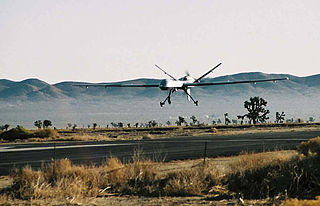 W
WThere are about 700 US troops in Somalia. After his defeat in the 2020 US elections, President Trump announced that he would pull all US troops out of Somalia by 15 January 2021.
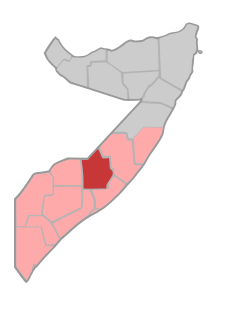 W
WThe 2009 Beledweyne bombing took place on June 18, 2009 in Beledweyne, Hiiraan, Somalia. A suicide bomber carried out the attack, detonating an explosives-laden vehicle at the front gate of the Medina Hotel. The blast killed 35 people, among them the Somali security minister Omar Hashi Aden, former Somali ambassador to Ethiopia and the African Union, Abdikarim Farah, and several Somali diplomats. Jihadist group al-Shabaab claimed responsibility for the attack.
 W
WOn 11 January 2013, the French military attempted a rescue operation in Bulo Marer, Lower Shabelle, Somalia to free French hostage Denis Allex from al-Shabaab. The operation failed: Allex was executed during the raid and two French commandos and at least eight civilians were killed in a firefight.
 W
WOn 20 February 2015, Al-Shabaab militants launched a surprise attack on the Central Hotel in Mogadishu, Somalia, where various Federal Government of Somalia officials had gathered for Friday prayers at the compound's mosque. Between 11 and 25 people were killed, including the suicide bomber, local deputy mayor and two MPs. The Federal Cabinet subsequently announced the formation of a security committee to probe the circumstances surrounding the attack, as well as a ministerial committee to follow up on the situation. Security forces thereafter apprehended a number of suspects, and deployed more police and soldiers onto the city's main roads.
 W
WDaallo Airlines Flight 159 was a scheduled international passenger flight operated by Somali-owned Daallo Airlines. On 2 February 2016, an explosion occurred on board the aircraft 20 minutes after it took off from Mogadishu. The aircraft was able to return to the airport safely, with one fatality reported. A subsequent investigation indicated that the explosion was caused by a bomb, detonated in a suicide attack. The Islamist militant group Al-Shabaab later claimed responsibility for the bombing. A total of ten people were convicted in relation to the plot.
 W
WThe Dayah Hotel attack occurred on 25 January 2017 when a hotel in the Somali capital city Mogadishu was attacked by Al-Shabaab gunmen and car bombs, killing 28 people and injuring 43 others. Taking place shortly after 08:00 on a Wednesday morning, the attack began when a car filled with explosives rammed the gate of the Dayah Hotel, a luxury hotel popular with politicians, and detonated. Immediately after, four armed militants attempted to storm the hotel – however Somali security guards shot the men dead before they reached it. As emergency services and journalists converged on the scene, a second car bomb detonated, causing more casualties.
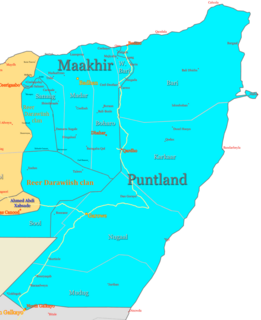 W
WThe Galgala campaign was a military campaign autonomous Puntland region of Somalia, that took place periodically from 8 August until 1 October 2014. It was aimed at re-gaining control of the Galgala hills, which had fallen in hands of al-Qaeda-linked al-Shabaab commander Sheikh Mohamed Said Atom and his militia.
 W
WThe 2015 Garowe attack was a bombing of a UN van in Garowe, Puntland, Somalia. Between 7 and 10 people were killed, including the attacker and four UNICEF workers. The Al-Shabaab militant group claimed responsibility for the blast. The Puntland administration subsequently appointed a governmental committee to probe the circumstances surrounding the attack, and apprehended over a dozen suspects.
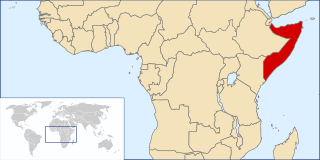 W
WThe 2009 Hotel Shamo bombing was a suicide bombing at the Hotel Shamo in Mogadishu, Somalia, on 3 December 2009. The bombing killed 25 people, including three ministers of the Transitional Federal Government, and injured 60 more, making it the deadliest attack in Somalia since the Beledweyne bombing on 18 June 2009 that claimed more than 30 lives.
 W
WThe Islamic State in Somalia or Abnaa ul-Calipha is an Islamic State of Iraq and the Levant-affiliated group that primarily operates in the mountainous areas of Puntland, though has also claimed responsibility for several terrorist attacks throughout the rest of Somalia. Led by Sheikh Abdul Qadir Mumin, the group is estimated to have up to 300 active fighters. Since its formation, ISS probably managed to take control of a small, sparsely populated territory in northern Somalia's mountainous hinterland, though it was not acknowledged as official province ("Wilayat") by ISIL's central leadership until December 2017. Since then, it has sometimes been called Somalia Province by pro-ISIL media. ISS is also the declared enemy of al-Shabaab, which considers the Islamic State a significant threat to its own predominance among Jihadist factions in Somalia.
 W
WOn July 26, 2015, the Jazeera Palace Hotel in Mogadishu, Somalia was struck by a suicide bomber driving a vehicle packed with explosives. At least 15 people were killed. al-Shabab claimed responsibility for the attack.
 W
WOn 19 June 2013, al-Shabaab, a Somali jihadist organization, attacked a United Nations compound in Mogadishu using suicide bombers, and gunmen who stormed the compound on foot, killing 15 and injuring at least 20. According to the UN, a pickup truck filled with explosives detonated outside the main gate of the compound located near Aden Adde International Airport at 11:30 a.m., which was followed by several gunmen assailing the area on foot, engaging in a gunfight with Somali security forces that lasted an hour and a half. Numerous blasts could be heard as Somali troops fought with at least seven militants.
 W
WOn 11 July 2010, suicide bombings were carried out against crowds watching a screening of the 2010 FIFA World Cup Final at two locations in Kampala, the capital city of Uganda. The attacks left 74 dead and 85 injured. Al-Shabaab, an Islamist militia based in Somalia that has ties to al-Qaeda, claimed responsibility for the blasts as retaliation for Ugandan support for AMISOM. In March 2015, the trial of 13 Kenyan, Ugandan and Tanzanian alleged perpetrators of the bombings began at the High Court of Uganda.
 W
WOperation Linda Nchi was an operation where the Kenya Defence Forces entered southern Somalia beginning in 2011. The Kenyan government declared the operation completed in March 2012, but its forces joined AMISOM in Somalia and are not expected to leave before 2020.
 W
WThe London Somalia Conference was a diplomatic conference hosted by the Government of the United Kingdom, which took place in London on 23 February 2012. Attended by Somali government officials and members of the international community, it focused on resolving issues that have arisen in Somalia in the wake of the civil war.
 W
WOn 27 March 2015, Al-Shabaab militants launched an attack on the Makka al-Mukarama hotel in Mogadishu, Somalia. The siege ended a few hours later on 28 March, after a special forces unit of the Somali Armed Forces stormed the premises, recaptured it, and killed all five of the attackers. According to the Ministry of Information, around 20 people died during the standoff, including the perpetrators, security forces, hotel security guards and some civilians, with around 28 wounded. The special forces also rescued more than 50 hotel guests. President of Somalia Hassan Sheikh Mohamud ordered an investigation into the attack, and the Ministry of Information announced that the federal government was slated to pass new laws to curb illicit firearms. On 8 May, the Makka al-Mukarama hotel officially reopened after having undergone renovations.
 W
WOn 14 April 2015, Al-Shabaab militants launched a suicide car bomb and shooting attack on the Ministry of Higher Education and Ministry of Petroleum and Resources building in Mogadishu. Special forces quickly reseized the compound, killing the attackers.
 W
WOn 23 February 2018, at least 45 people were killed and 36 others injured in two car bombings and a shooting in Mogadishu. Al-Shabaab later claimed responsibility.
 W
WOn 22 July 2019, at least 18 people were killed after a car bomb exploded on the road of Aden Adde International Airport and near the Afrin Hotel in Mogadishu, Somalia. Dozens others were injured, 17 critically. Al-Shabaab claimed responsibility for the attack.
 W
WOn 24 July 2019, a female suicide bomber blew herself up inside the office of the Mayor of Mogadishu, Abdirahman Omar Osman, during a security meeting. Islamist group al-Shabaab says it carried out the bombing. Seven people were killed, including Osman.
 W
WOn 28 December 2019, a suicide truck bomber killed at least 85 people at the Ex-Control Afgoye police checkpoint in Mogadishu, Somalia. More than 140 others were wounded and, as of 31 December, 12 people remained missing. Al-Shabaab claimed responsibility for the attack on 30 December. The attack was the deadliest in Somalia since the 14 October 2017 Mogadishu bombings, which killed 587 people.
 W
WOn 19 February 2017, at least 39 people were killed after a car bomb exploded near Wadajir market in Madina district, Mogadishu, Somalia. More than 50 others were wounded. No group claimed responsibility; Somali President Mohamed Abdullahi Mohamed offered a $100,000 reward for information leading to the arrest of those who planned the blast.
 W
WThe July 2018 Mogadishu bombings took place on July 7, 2018 when fighters of the Somali group Al-Shabaab attacked the compound of Somalia's interior and security ministries in the center of Mogadishu.
 W
WThe May 2010 Mogadishu bombings were an attack at a mosque near the Bakaara market in Mogadishu, the capital of Somalia, on 1 May 2010. The bombs killed at least 39 people and injured around 70 others.
 W
WThe 2 January 2017 Mogadishu bombings took place on 2 January 2017, when a pair of suicide car bombings targeted civilians and security forces in Somalia's capital. The first targeted a checkpoint, while a second car drove at high speed through it and detonated outside the Peace Hotel, opposite Aden Adde International Airport. The attack killed at least seven people and injured 17 others. The al-Shabaab militant group claimed responsibility for the attack.
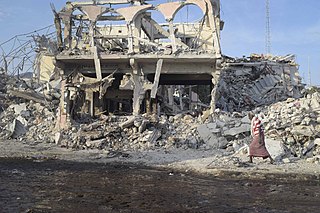 W
WOn 14 October 2017, two truck bombings took place in Mogadishu, the capital of Somalia, killing at least 587 people and injuring 316 others. Almost all of the casualties were caused by one of the trucks, which detonated when the driver, while attempting to escape from security officials, crashed through a barrier and exploded in the Hodan District, destroying a hotel; the intended target of the attack is believed to have been a secure compound housing international agencies and troops. The second blast happened close by, killing two people. A third explosives-laden truck was captured by police.
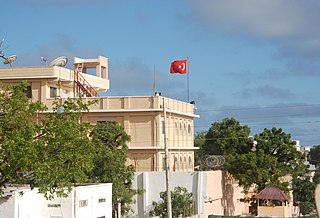 W
WThe 2013 Mogadishu Turkish embassy attack occurred on 27 July 2013 when al-Shaabab militants attacked the Turkish embassy in the Somali capital of Mogadishu, killing 3 people and injuring 9 others. At around 5:00 p.m. a minivan rigged with explosives detonated near the embassy compound. The explosion was followed by three armed militants attempting to storm the compound on foot, but they were repelled and killed by Turkish and Somali security guards.
 W
WNoramfaizul Mohd Nor was the first journalist from Malaysia to be fatally injured while on a dangerous assignment abroad. The attack occurred on 2 September 2011 in Mogadishu, Somalia, while Noramfaizul was reporting for Bernama TV on a humanitarian mission organised by the Islamic charity Kelab Putera 1Malaysia. An AMISOM investigation later concluded that he was accidentally killed by one of its peacekeepers while travelling in a Malaysian convoy.
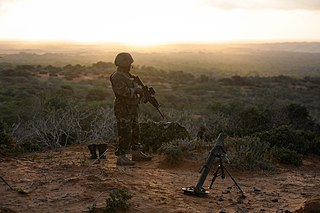 W
WOperation Indian Ocean was a joint military operation between the Somali military, AMISOM and the United States military against the Al-Shabaab militant group in southern Somalia. It officially began in August 2014.
 W
WThe Raskamboni Movement is a non-governmental paramilitary group active in southern Somalia. It is led by Sheikh Ahmed Madobe. Raskamboni's members are opposed to the radical Islamist group Al-Shabaab.
 W
WThe Transitional Federal Government (TFG) was internationally recognized as a provisional government of the Republic of Somalia from April 2004 until 20 August 2012, when its tenure officially ended and the Federal Government of Somalia was inaugurated.
 W
WThe Transitional Federal Parliament of the Somali Republic (TFP) was the national parliament of Somalia from 2004 until 2012.
 W
WOn 21 February 2014, Al-Shabaab militants launched a surprise attack on the Somali presidential palace Villa Somalia in Mogadishu, where the president and speaker of parliament live and have their offices. All nine of the attackers were slain during the ensuing shootout with palace guards and security, with at least five Somali security officials also killed.